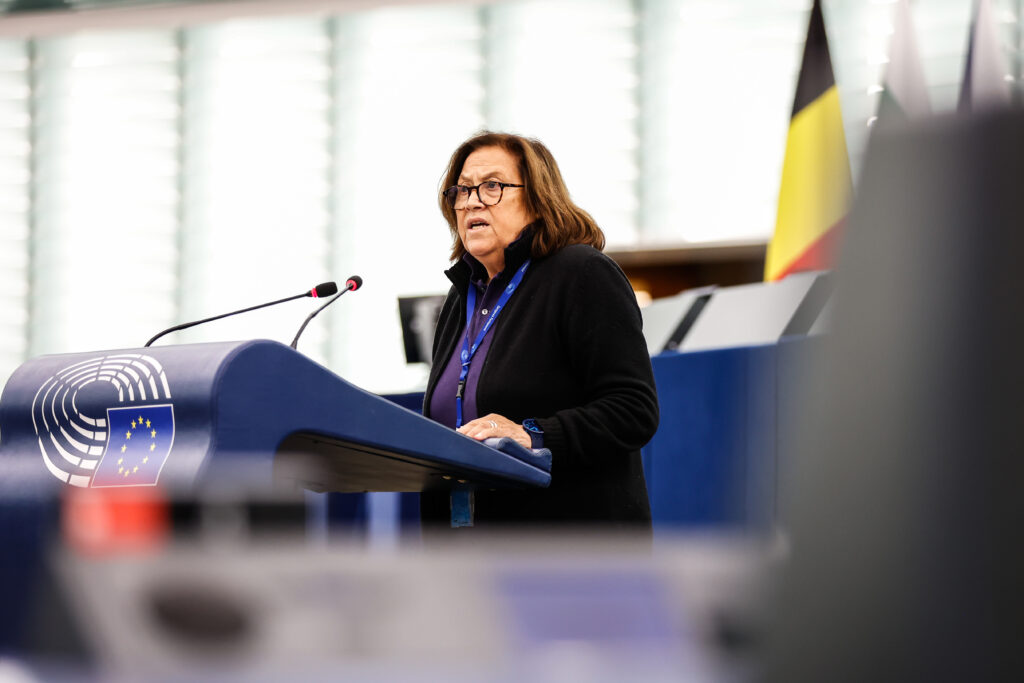Brussels – After nearly two years, rescuers still cry when they tell the story of Cutro. During the meeting “Saviors and Saved: Never forget Cutro,” organized yesterday (Nov. 20) at the European Parliament in Brussels by MEP Lucia Annunziata, the pain of those who experienced this tragedy directly is heard loud and clear.
To speak of tragedy is an understatement when faced with another impasse in the migrant rescue system. The underlying problem is that member states have exclusive responsibility for search and rescue activities at sea. So, beyond countless reminders of the legal obligation to rescue lives at sea, the EU’s room for maneuver remains severely limited.
In the case of Cutro, we are talking about a disaster that, as one of the rescuers recalls, “could have been avoided.” It claimed 94 lives due to the failure to rescue a boat that crossed the Mediterranean from Turkey, with about 180 people from countries such as Afghanistan, Syria, Iran, Pakistan, and Iraq. A Frontex aircraft on patrol had spotted a boat that allegedly may have been involved in migrant smuggling about 40 miles off the coast of Crotone.
With a European debate that sparks discussion, which desperately seeks a “third way” of managing migration, flirting with the policies of Meloni and her government, Cutro’s memorial event leads to a reflection on the lack of consistent European policies.

“The sequel to that story is that almost all of the survivors went to live in Europe and are living in Europe,” Annunziata said. “I hope that this kind of projection from the center of Europe, from the European Parliament, can touch the sensitivities of other European nations that have accepted refugees.”
“We are on the eve of a five-year period in which, unfortunately, Europe risks taking more steps back than forward,” said Nicola Zingaretti, head of the PD delegation to the European Parliament, who attended the event.
The MEP reflects on the causes of the Cutro shipwreck: “the result of a policy of no-choice and the denial of the very need to govern significant migration flows.”
The most touching memories come from Steccato di Cutro, from those who experienced that tragedy first-hand, not only through testimonies. Gaetano Rossi, one of the Civil Defense volunteers who was there the morning after the shipwreck, and the other rescuers at the event could not hold back tears.
“You had only anger and pain on you because this tragedy could have been avoided,” Rossi said, speaking of the lack of cooperation that would have allowed, after the first Frontex alert, to help those people. Pain that makes people say: “We couldn’t save anyone,” and anger that calls on Europe to do something “to stop these deaths at sea.”
More anger comes from the words of Alidad Shiri, who lost his cousin to the shipwreck. Shiri is Afghan and, like other family members, calls for “justice and truth.” After the shipwreck, the Meloni government made several promises, such as Italian diplomatic commitment in the EU to follow up on requests for reception and reunification in other European countries, particularly Germany, for a free Afghanistan that respects human rights, particularly those of women, and for overcoming the crises that cause migrants to flee.
It did not seem to keep many of the promises, and, as Shiri recalls, “A law for family reunification is still missing.” European justice has made strides, stating that Afghan women will be able to receive international protection precisely because they come from a country where women’s rights are a utopia that has been forgotten and abused. However, a ruling from the Court of Justice is not enough to resolve a situation with which the EU has been struggling for years.
There is a lack of political will to address migration flows adequately with an integrated and coordinated approach. Now that European policy is tilted dangerously to the right, migration management is looking more difficult. What Cutro reminds us and must continue to remind us is that “behind the number (of migrants, ed.) there is a person,” Zingaretti said. One cannot think of accepting that these tragedies happen at the expense of a person, no matter where they come from.
English version by the Translation Service of Withub









